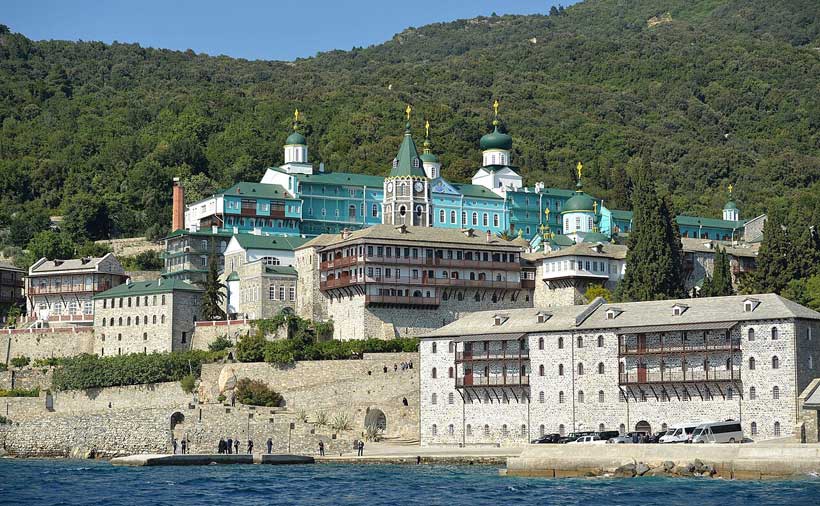He was arrested at Thessaloniki Airport “Makedonia” on an ordinary afternoon, carrying a one-way ticket to Moscow through Constantinople. His name was not made public. His story was simple. A Russian monk who had overstayed his visa, living for three years inside the monastic enclave of Mount Athos. The court sentenced him to two years in prison and a fine of €5,000 under Greece’s new immigration law, yet the sentence was suspended when he agreed to leave the country.
He said he had been “planning to return home but couldn’t find a ticket.”
His words were calm, even sincere. But in Greece, such stories are rarely about one man. They echo something larger. A quiet choreography that has long unfolded between Moscow and the monasteries.
For decades, Russia has used faith as language, the Church as instrument, and pilgrimage as passage. Orthodoxy has served as both symbol and system, binding nations through shared liturgy and invisible loyalties. Inside this sacred network, Mount Athos has been more than holy ground. It has been a listening post, a refuge, a mirror of influence stretching from the Kremlin to the Aegean.
Those who study the Holy Mountain know its rhythm well. The silence, the incense, the walls that keep the world away. But silence can be useful. It hides, protects, and allows what governments cannot openly conduct. The Russian monastery of Agios Panteleimonas, once a place of prayer and exile, became a quiet embassy of Russian influence. Within its courtyards, monks came and went, some devout, others discreetly tasked. They carried icons, but sometimes also information.
When the monk was arrested in Thessaloniki, no one spoke of espionage. There was no need. The pattern was familiar. Visitors who arrive under the banner of faith, who stay beyond their welcome, who move unseen through the folds of Greece’s most impenetrable territory. A spiritual corridor that has outlived regimes, alliances, and wars.
In the eyes of the law, the man was only an overstayer. In the language of power, he was part of a tradition, one that treats religion as diplomacy and monasteries as quiet extensions of policy.
Athos remains unique, self-governed, and sacred. It is also protected by custom yet vulnerable to devotion. Inside its stone cells, politics takes the form of prayer. Messages travel not by cable, but by blessing.
The arrest revealed nothing new, only what had always been there. A structure without headlines, a network without uniforms, operating under the oldest banner of all, faith.
And beyond Athos, the map of Moscow’s soft power and religious diplomacy continues to expand. From Serbia to Syria, from Jerusalem to Cyprus, the same language is spoken including brotherhood, tradition, shared faith. Yet beneath that vocabulary lies a patient strategy, one that converts theology into influence and heritage into leverage. It is not the hard power of arms, but the soft endurance of creed.
The monk will go home, but the system he served, knowingly or not, will remain.
Because in the 21st century, Russia no longer exports ideology but faith.
And faith travels lightly, without passport, without trace.


